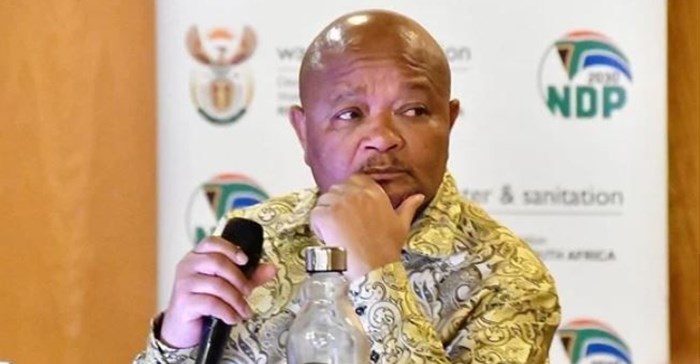Minister Senzo Mchunu, along with the Trans-Caledon Tunnel Authority (TCTA), has donated 40 homes to Kgubetswana Township families in Clarens, Free State.

Source: x.com. Minister Senzo Mchunu.
The residential houses were built by TCTA as accommodation for out-of-town staff members working on the construction of the Ash River Outfall during the implementation of the Lesotho Highlands Water Project Phase 1 (LHWP-1).
The organisation started leasing out the houses to the residents of Kgubetswana with the intention of selling them to occupying residents at a discounted price.
However, according to TCTA chief executive, Percy Sechemane, the TCTA struggled to sell the houses to the resident occupants over the last 28 years due to affordability issues, as most of the occupants were either elderly or unemployed.
After consultations between the department and TCTA, the parties decided to donate the houses to their original occupants who were part of Phase 1 of the Lesotho Highlands Water Project.
Speaking at the event, Mchunu emphasised government’s commitment to ensuring the upliftment of communities.
“The donation of these houses demonstrates our commitment to better the lives of citizens, wherever we can. Through the TCTA, we will continue to develop initiatives that bring dignity and progress to our communities.
"This quality and the size of houses is the best, and I would have loved to do more, but that is in the hands of the mayor now, the standard has been set,” Mchunu said.
Property value boost beneficiaries
In 2006, the houses were valued between R65,000 and R85,000, however, a recent valuation in preparation for the transfer of ownership to the beneficiaries indicated that the current value of the houses was between R380,000 and R640,000.
“The value of the properties being donated to the 39 families and an NGO servicing persons living with disabilities is R16,720,000. The property sizes range from 208m² to 302m²,” Mchunu said.
Sechemane said the process of property transfer is currently being finalised at the Deeds Office, and all new owners will be receiving their title deeds in the next six weeks.
“It is believed that such a massive transfer of property ownership to these families and the escalation of the property value to multiple times the original value, will make a significant contribution in boosting the property values in the area,” said Sechemane.
Leader hails historic homeownership
One of the beneficiaries and a local community leader, Sonwabo Morgan Ngubane, expressed the beneficiaries’ profound gratitude for being granted the opportunity to own their homes.
“Today we made history. We have been working diligently with TCTA over the years, helping to resolve all the outstanding issues to ensure that the organisation can reach this day,” Ngubane said.
The handover of houses to new owners was preceded by an engagement between the minister, TCTA and representatives from Free State municipalities on water and sanitation services in the province.
During the engagement, Mchunu implored municipalities in the province to do all it can to overcome any challenges hindering water- and sanitation-services provision in the province.
Water provision unaffected
TCTA re-assured municipal representatives that the Lesotho Highlands Tunnel closure from October 2024 to March 2025 for maintenance, will not adversely affect water provision in both Free State and Gauteng provinces.
“We continue to work with the DWS provincial office in Free State and local municipalities to explain all the processes we are following to ensure that water provision will continue uninterrupted during the six-month period of maintenance,” Sechemane said.
TCTA is a state-owned entity under the Department of Water and Sanitation and is responsible for financing and implementing bulk raw water infrastructure in South Africa, including the South African portion of the Lesotho Highlands Water Project.
The Lesotho Highlands Water Project is a multi-phased initiative established by a 1986 treaty between the governments of Lesotho and South Africa, designed to provide water to South Africa’s Gauteng region and generate hydroelectricity for Lesotho.
The project includes the construction of a series of dams to harness the waters of the Senqu/Orange River in Lesotho’s highlands, for the mutual benefit of both countries.
Phase I of the project was completed in 2003 and inaugurated in 2004, with Phase II currently underway and expected to be completed by 2028. The project is envisaged to yield a capacity of 14 cubic metres per second to the Vaal River System.






















































